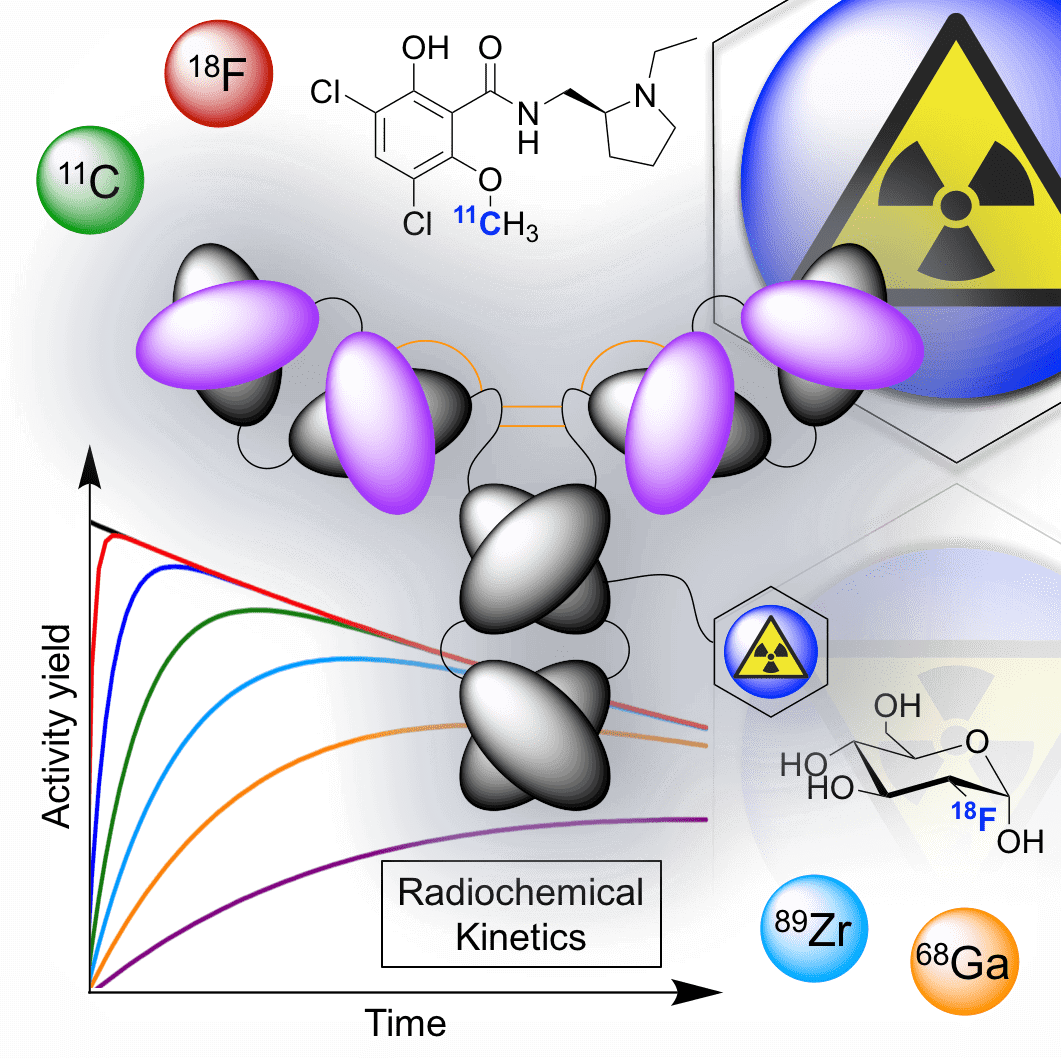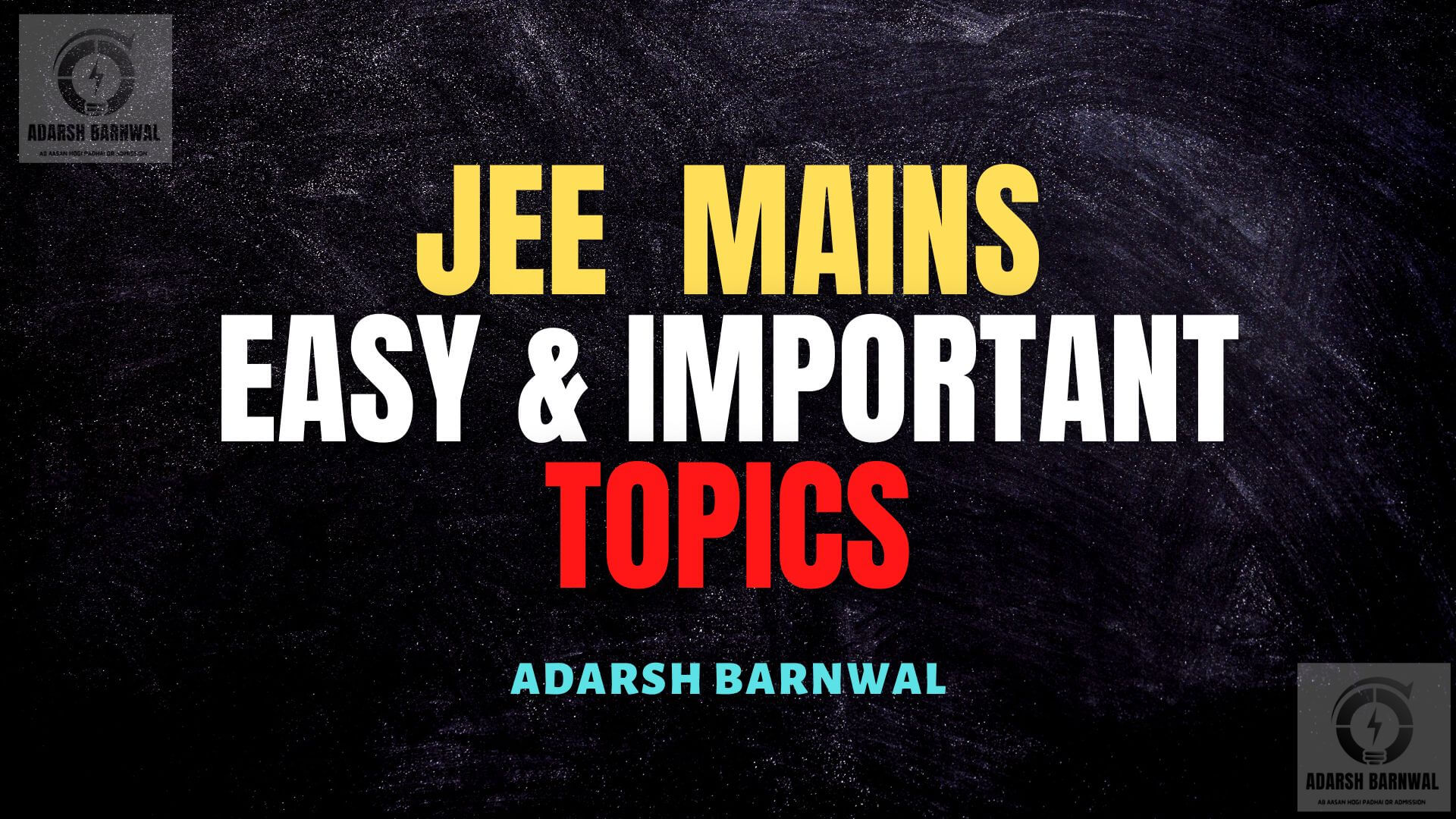Syllabus for Jee mains
| Unit 9 Chemical Kinetics |
| The rate of a chemical reaction, factors affecting the rate of reactions: concentration, temperature, pressure, and catalyst.Elementary and complex reactions, order and molecularity of reactions, rate law, rate constant and its units, differential and integral forms of zero and first order reactions, their characteristics and half-lives, the effect of temperature on the rate of reactions.Arrhenius theory, activation energy and its calculation, collision theory of bimolecular gaseous reactions (no derivation). |
Chemistry EASY AND IMPORTANT CHAPTERS ( JEE MAINS 2020 )
- Mole concept- 4 marks
- Solid state – 4 marks
- Solution – 4 marks
- Biomolecules- 4 marks
- Polymer- 4 marks
- Atomic structure- 4 marks
- Chemical Bonding- 4/8 marks
- Chemical kinetics- 4 marks
- Thermodynamics and Thermochemistry- 8 marks
- Surface chemistry + Metallurgy + real Gas + Chem in Every day – 12 marks
Important topics for JEE Main Organic Chemistry
The pattern of questions asked in Organic Chemistry in JEE Main is not fixed. Questions can be asked at random and therefore, all are important topics for JEE Main 2020. You should prepare the basic and general topics of organic chemistry in detail. These topics include nomenclature, types of reactions, basicity, acidity, etc.
You should be thorough with the named reactions and their mechanism. Questions based on named reactions and mechanism are commonly asked in JEE Main . You should also prepare steps of common chemical reactions. On average, 2-3 questions from the topic – organic synthesis are asked in the exam.
Important topics for JEE Main Inorganic Chemistry
All the topics in Inorganic Chemistry are considered important for JEE Main 2020. All the chapters carry equal weightage in JEE Main. Your basics and the fundamentals should be clear in each and every topic. Inorganic chemistry can help boost your score if you prepare Method of Preparation, Chemical Reactions, uses, etc. of the compounds.
The Elements of the periodic table and Chemical Bonding are the most important topics for JEE Main 2020. These two topics should be on your tips. They are important for building a solid foundation for Inorganic chemistry. Questions asked from Chemical bonding are based on the following topics:
- Fajan’s Rule & it’s application
- Shape and Hybridisation
- Molecular Orbital Theory (where the most important topic is Electronic Configuration)
- Dipole Moment
Another very important topic for JEE Main in Inorganic Chemistry is Transition elements and coordination chemistry. About three questions are asked from this chapter. Questions are based on topics like Isomerism (Structural, Geometrical, Linkage, Optical Isomerism), Lanthanoid Contraction, Nomenclature and Crystal Field Theory.
Hydrogen and S & P block elements are also among the most important topics for JEE Main. You should be thorough in topics such as structures of various acids like P, S, Cl, N, Nitrogen Oxides, Dimers of Boron and Aluminium, oxides and their acidic-basic structure.
Important topics for JEE Main Physical Chemistry
The most important topic for JEE Main in Physical Chemistry is Mole concept. Many reactions like Redox Reaction are based on Mole concept. So, this topic should be on your tips as this is the basic connect.
Your formulae and basic concepts should be clear in Atomic Structure. Questions are frequently asked from this chapter in JEE Main. Important topics in this chapter are Quantum Numbers, the Wavelength of Electronic Transition and Ionisation Energy.
Gaseous State and Solid state are also important topics for JEE Main 2020. Your fundamentals should be clear on these topics. Frequently asked questions are from topics like van der Waals equation, Kinetic Theory of Gases and Types of Molecular Velocity.
The other topics that carry equal weightage in JEE Main are below:
- Solutions
- Electrochemistry & redox Reactions
- Chemical Bonding and Molecular Structure
- Chemical Thermodynamics
- Equilibrium
- Surface Chemistry
- Chemical Kinetics
CHEMICAL KINETICS NOTES PDF-https://drive.google.com/open?id=18hlrWtKT3ENLLAjEOcXam4D89gTQIBp0
CHEMICAL KINETICS PREVIOUS YEAR- https://drive.google.com/open?id=18dWlXip49ek8ajdsWh06joJ5sRSVC4M2







Comments are closed.